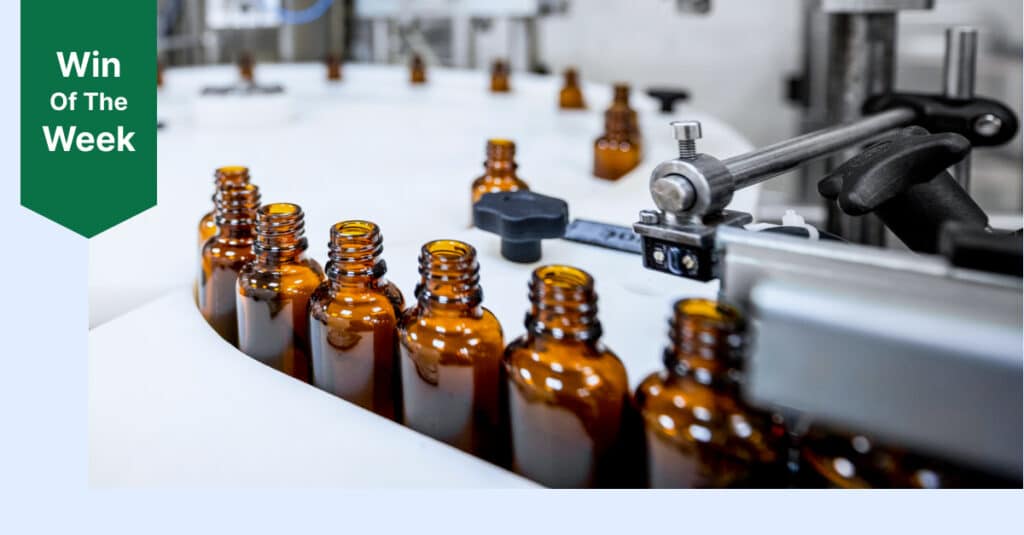
For the first edition of ChangeOver – the new home of the Machine Health Movement – manufacturing thought leaders gathered to listen to two experts share insights and best practices on how Machine Health contributes to the health of businesses, careers and supply chains.
The first episode of ChangeOver took place on November 16th on LinkedIn Live. Hosted by the wonderfully caffeinated Jason Silva – National Geographic’s host of Brain Games! and creator of Shots of Awe – the event featured speakers Warren Pruitt, VP of Global Engineering Services at the iconic Colgate-Palmolive, and David Seignolle, VP of Operations at world’s largest drug maker Teva Pharmaceuticals.
To open, Jason explained how the manufacturing industry is coming together to build more resilient systems. It’s doing this by using the unprecedented machine insights provided by technologies like the Industrial IoT, Machine Learning and AI. “These technologies enable us to predict disasters and disruptions before they happen,” says Jason.
Watch the first episode of ChangeOver.
The Backstage Economy Powering Our Society
“There is a ‘backstage economy’ where industrial machines, and the people who work with them, power not just manufacturing but also energy generation, water management and many other crucial sectors,” says Jason. “These machines and the people who work with them are the other essential workers.”
Because the drug manufacturing industry, like many others, is so complex and interconnected due to globalization, a little thing here can have a big impact somewhere else.
And during the Covid-19 pandemic this hidden and ultimately complex world was thrust into the spotlight by problems such as:
- How can we keep staples on the shelves in a crisis?
- How can we safely make billions of doses of a new vaccine?
- How can we ensure that everyone has the products they need every day?
“Because the drug manufacturing industry, like many others, is so complex and interconnected due to globalization,” observes David, “a little thing here can have a big impact somewhere else.”
“And if there’s one thing Covid taught us,” adds Warren, “is that you have to build in more flexibility and resilience.”
Machine Health is Business Health, Career Health and Supply Chain Health
Now thanks to Machine Health technologies, a future can be envisioned where predictable production can happen in an unpredictable world. “Machine Health is about much more than just machines,” notes Jason. “Machine Health is business health for manufacturers who can now predict the future of their machines and operations so they can hit production targets every time.”
“But Machine Health is also career health for manufacturing workers whose jobs are evolving to take on new challenges,” adds Jason. “And it’s supply chain health since it helps ensure that people always have the basic products they need.”
Machine Health really helped us to get additional throughput on our lines, thus giving us additional products to go to the shelf.
As Warren observes: “When we had to turn up our capacity around liquid hand soaps, floor cleaners, toothpaste and mouthwashes during the pandemic, Machine Health really helped us to get additional throughput on our lines, thus giving us additional products to go to the shelf.”
Empowering The Heroes On The Floor
“And it was the plant people who were running those operations day-in and day-out, who were the heroes through the pandemic in our industries,” says Warren.
David agrees absolutely: “In Teva’s sixty-plus sites, not one site ever stopped over eighteen months,” notes David. “All of these operators, technicians, lab-analysts, engineers… The resilience of these people was outstanding to keep medicine flowing and to keep consumer goods flowing. And now we are seeking to enhance what they do by empowering them with new Machine Health technologies.”
Accelerating And Scaling Change Worldwide
Meanwhile, Colgate-Palmolive is out to connect all of its 20,000 factory workers over 40 facilities worldwide. “Machine Health and other smart technologies are allowing our operators to step back and say how can you run that equipment better? And through these technologies, they transition from being a conventional operator into more of a technician,” says Warren.
Colgate-Palmolive was already implementing their five-year global digitalization road map before the pandemic. But when faced with the increased supply chain and operations challenges, they decided to accelerate their efforts. “We are now at least a year ahead of schedule – and feeling very excited and confident about the future,” says Warren.
Machine Health = Human Health
“Two hundred million patients get their drugs from Teva every single day,” says David. “All pharma companies do not want downtime, machine failure or any event that can fail the patient. We work for the patient.”
“The future of human health and machine health are indeed intertwined,” concludes Jason.
Watch the full 40-minute episode to learn more about the future of manufacturing.




